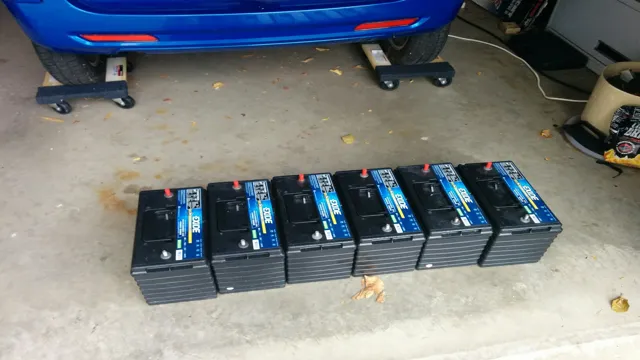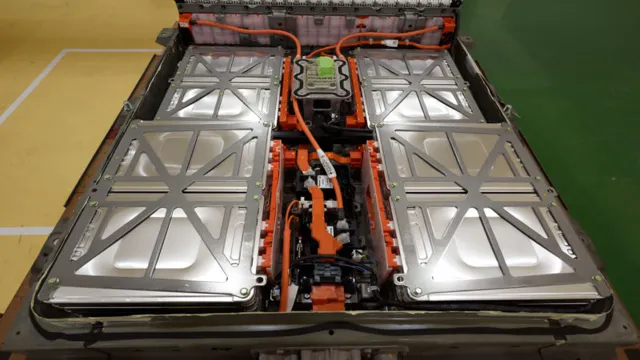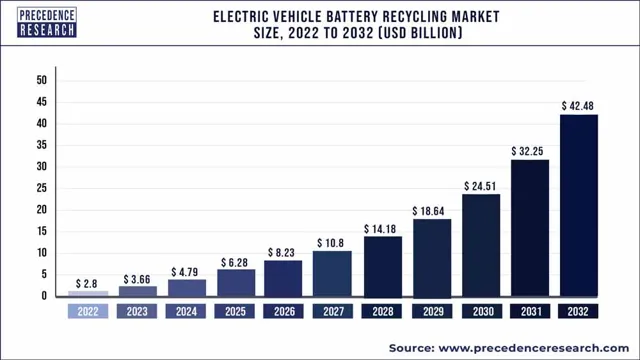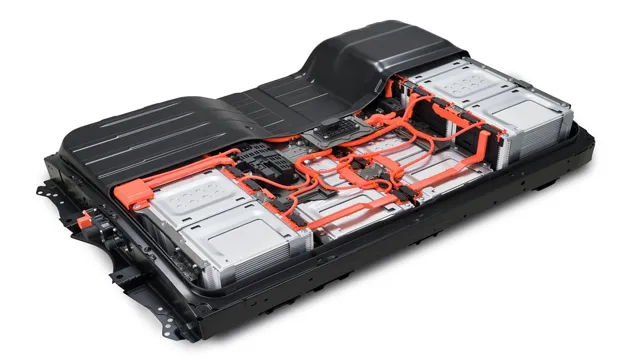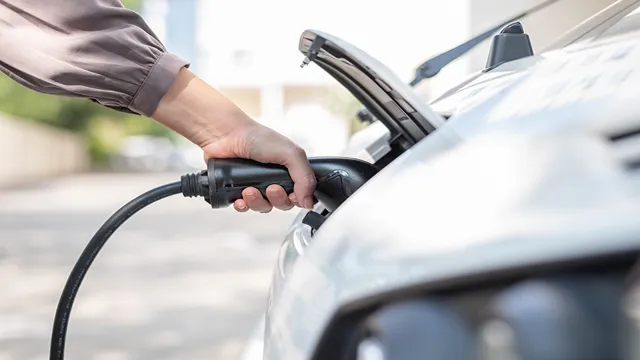Hot Weather and Electric Car Batteries: How to Ensure Your Vehicle Keeps Its Charge
Electric car batteries are quickly becoming a popular alternative to traditional gas-powered vehicles. With their eco-friendly features and low operating expenses, it is no surprise that electric vehicles are gaining widespread use. However, hot weather can pose a serious challenge for electric car owners.
The intense heat can cause several problems for electric car batteries, which can impact the car’s performance and lifespan. In this blog, we will explore the effects of hot weather on electric car batteries and provide some tips to help you keep your electric vehicle running smoothly throughout the summer months.
Introduction
Electric car batteries are becoming increasingly popular, but many drivers may not realize how hot weather can impact their performance. In extreme heat, electric car batteries can be affected in numerous ways, including decreased driving range, slower charging times, and potential damage to the battery’s cells. This is due to heat causing the battery’s fluids to evaporate, leading to a loss of conductivity and ultimately reducing its ability to hold a charge.
To prevent these issues, it’s essential for electric car owners to protect their batteries by parking in the shade, avoiding extended exposure to high temperatures, and allowing their vehicles to cool down before charging. Overall, understanding how hot weather impacts electric car batteries is vital for maintaining optimal performance and getting the most out of this eco-friendly mode of transportation.
The Effect of Hot Weather on Electric Car Batteries
Electric car batteries can be affected by hot weather, and it’s important for electric vehicle owners to know how to mitigate any potential issues. Higher temperatures can cause the battery to degrade more quickly, reducing its overall lifespan and reducing the vehicle’s range. In extreme cases, overheating can even cause damage to the battery cells.
It’s important to keep your car out of direct sunlight as much as possible, and to park in shaded areas or garages whenever possible. It’s also a good idea to avoid charging the battery during the hottest parts of the day, and to use the car’s air conditioning system sparingly to reduce strain on the battery. Proper care and maintenance can help ensure that your electric car battery lasts as long as possible, even in hot weather conditions.
Data and Research Showing Heat’s Impact on Electric Car Battery Life
As more people switch to electric cars, it’s important to understand the impact of temperature on the lifespan of their batteries. Research suggests that heat can significantly lower battery life, leading to shorter driving ranges and more frequent replacements. One study found that electric vehicles in hot climates experience a reduction in battery capacity of up to 25% over three years compared to those in cooler climates.
This means that an electric car that offers 200 miles of driving range when new may only offer 150 miles of driving range after three years in a hotter climate. It’s important for electric car owners to take measures to mitigate the effects of heat on their batteries, such as parking in the shade and avoiding exposure to direct sunlight for extended periods of time. By understanding the impact of temperature on their electric car batteries, owners can better maintain the lifespan and performance of their vehicle.
Strategies for Preserving Electric Car Battery Life in Hot Weather
If you’re living in a hot climate and own an electric car, it’s important to maintain your car’s battery health. High temperatures can shorten the lifespan of an electric car battery, so it’s crucial to take preventive measures to ensure it remains in good condition. One strategy is to park your vehicle in the shade or in an enclosed area, such as a garage.
This can help to mitigate the effects of the sun’s heat on the battery. Additionally, avoid leaving your car parked in direct sunlight for prolonged periods of time. Another tip is to charge your battery during the coolest part of the day, such as early morning or late evening, to prevent overheating.
It’s also essential to keep up with routine maintenance and servicing to ensure your battery is running properly, as any issues can contribute to heat-related degradation. Finally, taking it easy on your battery, such as not engaging in rapid charging or hard acceleration, can help to prolong its lifespan and keep it functioning optimally in hot weather. By taking these steps, you can help to safeguard your electric car battery, prolong its lifespan, and optimize its performance in hot climate conditions.
Optimizing Battery Charging and Discharging to Reduce Heat Buildup
Hot weather can have a significant impact on the lifespan of electric car batteries, and understanding how to optimize charging and discharging can help reduce heat buildup and extend battery life. One important strategy is to avoid fully charging or discharging the battery, as both can lead to excess heat and put additional strain on the cells. Instead, try to keep the battery level between 20% and 80% and recharge it frequently to prevent it from dropping too low.
Additionally, some electric cars have a “battery save” mode or similar feature that can help regulate temperature and prevent overheating. By taking these steps and being mindful of how you charge and use your electric car battery, you can help ensure that it lasts as long as possible even in hot weather conditions.
Parking in the Shade or a Garage to Minimize Heat Exposure
Electric Car Battery Life When it comes to electric car battery life, hot weather can pose a significant challenge. High temperatures can cause the battery to degrade faster, reducing its overall lifespan and leading to costly replacement and maintenance fees. To minimize heat exposure, parking in the shade or a garage is an excellent strategy.
Keeping the car out of direct sunlight can make a considerable difference in the battery’s longevity, especially during periods of extreme heat. Additionally, keeping windows slightly cracked to allow air circulation can prevent the interior from overheating and help preserve the battery. It’s also essential to avoid overcharging the battery; this can cause it to overheat and reduce its efficiency.
To extend the battery’s life further, avoid using high-powered accessories such as climate control or the stereo system excessively, as these draw more power from the battery and increase its temperature. By following these simple strategies, electric car owners can maintain their battery’s health and prolong its lifespan while enjoying their car’s eco-friendly benefits.
Using Sunshades or Windows Tints to Block Heat
Electric car owners who frequently drive in hot weather should take extra measures to preserve their battery life. One effective strategy is to use sunshades or window tints to block out the sun’s heat. When parked under direct sunlight, an electric car’s battery temperature can rise dramatically, leading to decreased battery life and potential damage.
By using sunshades or window tints, the car’s interior and battery temperature can be reduced, preserving the battery’s longevity. Additionally, car owners can also consider parking their electric vehicle in shaded or covered areas to further avoid prolonged exposure to heat. While these strategies require additional investment, they ultimately lead to long-term savings and improved battery performance.
Conclusion
In conclusion, electric car batteries can suffer from the intense heat, much like we do on a sweltering summer day. However, as technology continues to advance, so does our ability to mitigate this issue. From advanced cooling systems to smart software management, we are well on our way to ensuring that electric cars can handle the heat and keep us cool on the road.
So fret not, fellow drivers, the future of electric mobility is looking bright and oh-so-temperate!”
Taking Steps to Keep Your Electric Car Battery Cool in Hot Weather
Electric car batteries can get very hot in summer, which can decrease their lifespan and make them less efficient. Fortunately, there are some strategies you can take to keep your electric car battery cool during hot weather. One approach is to park your car in the shade or a garage whenever possible.
This can significantly reduce the temperature inside the car, preventing the battery from overheating. Additionally, you can use a reflective windshield shade to block out some of the sun’s heat. Another strategy is to aim for cooler driving conditions.
This means driving more slowly and avoiding hard acceleration, which can put extra strain on the battery. Finally, it’s important to keep your car well-maintained, including regularly checking and replacing coolant as needed. By taking these simple steps, you can help extend the life of your electric car battery and ensure that you get the most out of this eco-friendly technology.
FAQs
How does hot weather affect electric car batteries?
Hot weather can negatively impact the performance and lifespan of electric car batteries. Heat can cause the battery to degrade faster, leading to decreased range and increased risk of battery failure.
How can I protect my electric car battery in hot weather?
To protect your electric car battery in hot weather, park in the shade whenever possible to minimize direct exposure to sunlight. Avoid fast charging during hot temperatures, which can cause the battery to overheat.
Is it better to drive an electric car in hot or cold weather?
Electric cars perform better in moderate temperatures, as extreme temperatures can impact the efficiency and range of the battery. However, with proper care and maintenance, electric cars can still be driven in hot weather.
How long do electric car batteries last in hot weather?
The lifespan of electric car batteries in hot weather depends on several factors, including the make and model of the car, the battery’s size and capacity, and how well it is maintained. In general, batteries that are exposed to extreme heat will degrade faster, requiring replacement sooner than a battery that has been well-maintained in cooler temperatures.

